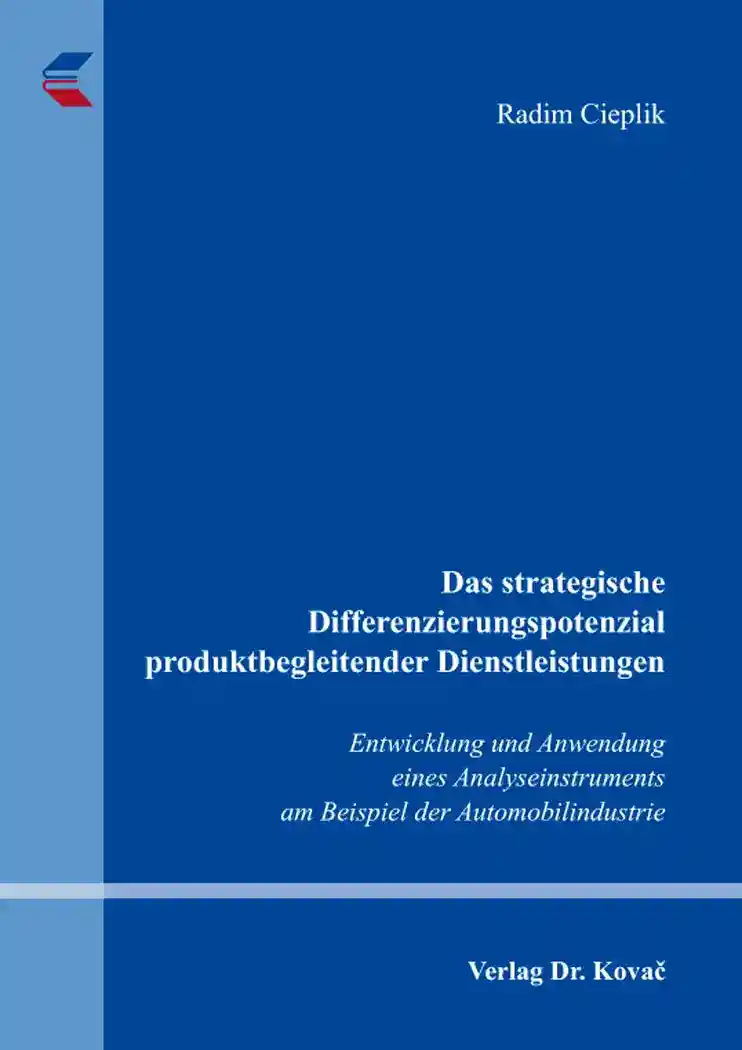Radim CieplikDas strategische Differenzierungspotenzial produktbegleitender Dienstleistungen
Entwicklung und Anwendung eines Analyseinstruments am Beispiel der Automobilindustrie
Strategisches Management, volume 192
Hamburg 2016, 378 pages
ISBN 978-3-8300-9194-3 (print)
ISBN 978-3-339-09194-9 (eBook)
About this book deutschenglish
The differentiation potential of services in today's competition is well known in the relevant literature. Nevertheless, there is a lack of a tool, which helps companies to quantify the differentiation potential of services, and therefore be able to use them in a more strategic way. With this book Radim Cieplik provides a self-designed analytical instrument to solve the mentioned problem. His thesis significantly differs from classical doctorate articles in marketing literature, as it is not only provides a theoretical study but also a practicable approach.
The starting point of the approach is the simultaneous consideration of supply and demand. Based on this fact, the book focuses on two theories: The value chain for value-added services and the factor theory of customer satisfaction. These two theories point out that the differentiation potential of product-related services can be identified by the spreading of a service within a market on the one hand and also with the intensity of customer delight through a service on the other hand. For the identification of these two factors, the author uses an industries segment analysis and the Kano Model Analysis. The combination of the theories and analyses as well as further specific surveys and measuring methods, leads to a final instrument, the so-called Differenzierungspotenzial-Analyse.
In addition to the conceptual work in this thesis, Radim Cieplik transferred his comprehensive strategic tool to the automotive industry. That partly empirical study allows to phrase solid statements about the differentiation potential of a total of twenty product-related services within the industry.
This book is intended for teachers and students of business administration studies with a focus on marketing and service management. Experts and managers from operational practice receive valuable hints and suggestions, as this work not only clarifies the question on what theoretical and methodological basis differentiation potential of product-related services can be analysed, it also provides a practical concept for the identification of the differentiation potential. This particularly is very valuable for sectors and industries, which see themselves faced more and more with the need of a service-based business model.
